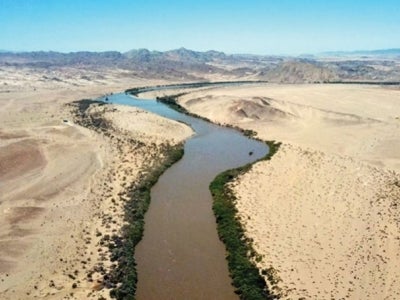
Lake Victoria is Africa’s largest inland fresh water sanctuary. It hosts more than 300 endemic fish species, produces more than 300,000 tons of fish, and supports domestic, artisanal and agricultural activities. Lake Victoria’s fishing sector generates US$ 300-400 million a year and provides a source of livelihood for three million people (Kayombo and Jorgensen, 2005). However, the lake is also a destination for local waste and sewage disposal.
The wetlands on the fringes of Lake Victoria are productive ecosystems, cleaning and regulating water systems while providing a home for aquatic plants and wildlife. The wetlands also provide raw materials for crafts and construction. The Basin of Lake Victoria contains a wide range of terrestrial ecosystems including rangelands, forests and farmland; and is host to many indigenous plants and animals, including the world’s largest concentration of large mammals.
However, Lake Victoria is now considered a dying lake. Strong population growth has contributed to growing environmental degradation, resource conflict and poverty. This environmental deterioration significantly reduces the region’s economic productivity, and produces US$150 million in annual loses. Scientists estimate that about 500 fish species are now locally extinct in Lake Victoria. Factors that cause the slow demise of Lake Victoria include the following; (i) overfishing and illegal fishing, (ii) high levels of pollution, (iii) massive degradation of catchment areas and the shoreline, (iv) climate change.
The key objective of this project was to contribute to the restoration of Lake Victoria’s ecosystem through the promotion of integrated aquaculture and natural resources management, using upscaling and replication approaches.
The project implemented by ECOVIC and supported by the GEF Small Grants Programme (SGP) implemented by UNDP, supported the replication and scaling up of the following key activities:
- Supported villagers in the development of on-land fish farming in order to get alternative sources of fish to reduce fishing pressure inside the Lake Victoria waters. This activity is integrated with crop farming and wetland conservation for sustainable development at the local level.
- Strengthen Beach Management Units (BMUs) to enforce law No. 22 of 2003, which prohibits illegal fishing and degradation of the shoreline. Under this law, fishing through the use of poison, beach seine, trawlers and fish nets with smaller holes are outlawed. This action aimed to prevent further degradation of the shoreline and fish breeding sites; as well as to rehabilitate degraded beaches.
- Establish Field Farmers Schools (FFSs) to train farmers, who live adjacent to the Lake Victoria shores, to refrain from using chemical fertilizers. Instead, farmers were trained to use organic fertilizers, reducing the high level of eutrophication.
In addition, local leaders and politicians were sensitized to make policy statements prohibiting practices that degrade Lake Victoria, and promoted integrated aquaculture including wider replication of on-land fish farming practices.
This story was orginally published in "Scaling up Community Actions for International Waters Management" in 2016.


